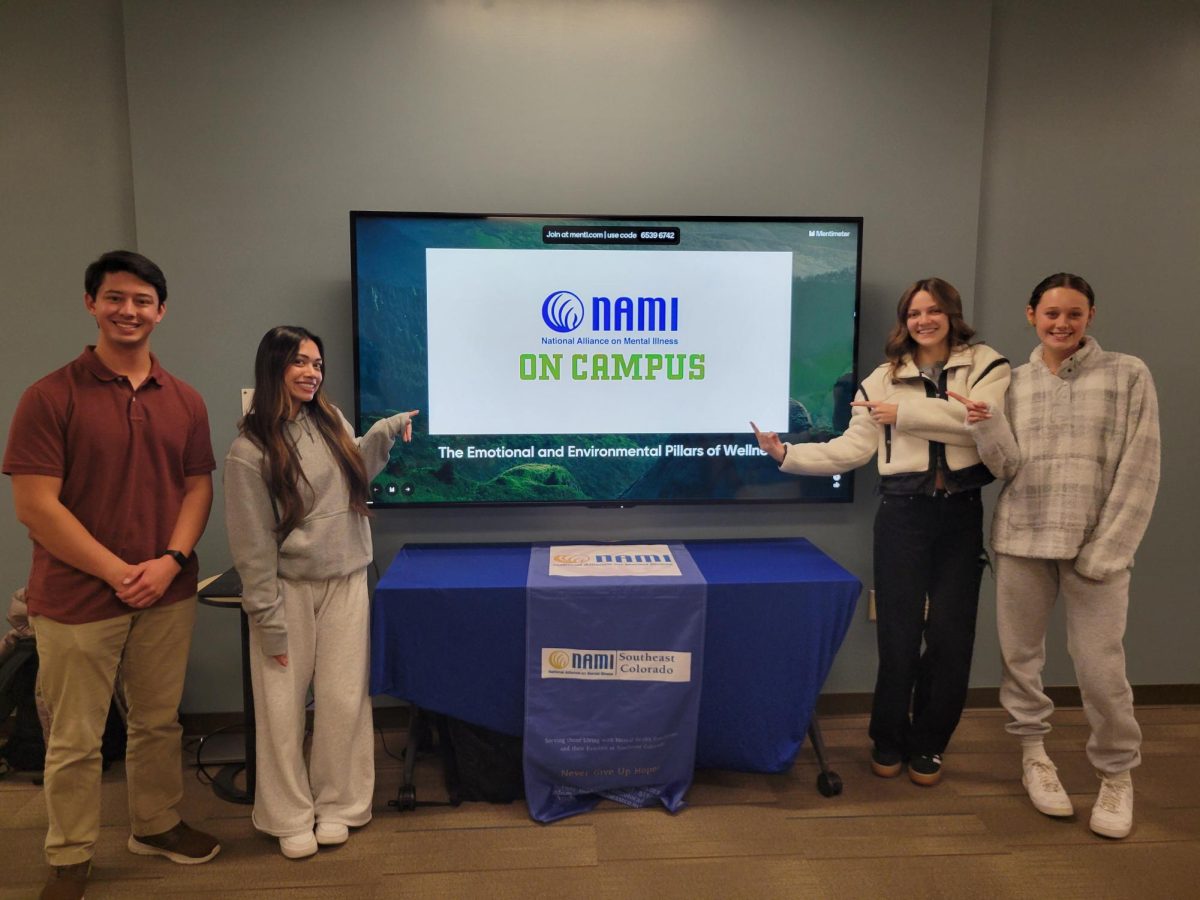
Concerns regarding university deadlines, campus remodeling, campus marijuana policies and potential smoking bans were discussed during Pizza with the President on Jan. 30.
The January luncheon was held in the Hearthwell Lounge from noon-1 p.m. Each month, Pizza with the President will be held at different locations around campus.
During the luncheons, President Lesley Di Mare, along with a group of administrators, address the concerns and questions of students.
At the start of this month’s lunch, Di Mare said that she wanted the Pizza with the President luncheons to be an opportunity for students to become acquainted with her.
She then proceeded to introduce the administrators, which included: Director of Student Judicial Affairs, Jessica Boynton, Chief of Staff, Jen Mullen, Director of Admissions and Financial Aid, Sean McGivney and Interim Director of Auxiliary Services, Chris Fendrich.
When the floor opened for students to speak, the issue of financial aid deadlines were brought up. Some students had difficulties locating, on PAWS, the dates for billing deadlines, disbursement dates and deadlines to charge to their student accounts.

A possible solution discussed was to include basic financial aid deadline information on the Student TWOLF Portal page. Students also voiced distress about how the last day they could charge to their account during the winter break occurred before the first billing date.
Di Mare explained this was a result of pressures put on the college during the accounts receivable audit.
“One of the things they noted in this audit, we were allowing students to charge books way before they registered,” Di Mare said. “Then they weren’t paying for them once they got their financial aid, so we got our hands slapped for the past couple of years.”
The last date that students could charge to their student account at the bookstore during the winter break was Jan. 5. Many students, especially out of state students were unable to meet the deadline.
According to sources at the bookstore, after difficulties with the initial deadline, students were allowed to charge their books again from Jan. 14-16.
A possible explanation for this early charging window was the difficulty of trying to please students who bought books before the start of the semester, students who wait until after the start of the semester and students who want their financial aid disbursement as soon as possible.
“Nearly 80 percent of our students’ want their financial aid as early as possible, not only for books but for things like off campus expenses and food,” McGivney said
The next topic discussed was possible renovations to parts of the campus that could use remodeling or upgrades, such as Belmont Hall. Though there was a consensus from the students attending the lunch, even though Belmont Hall is a community friendly dormitory, some feel that this dorm needs remodeling and upgrades.
Di Mare and Vice President of Finances and Administration, Marty Hanifin, discussed the problems with Belmont Hall for hours last week in the president’s office.
“We know that belmont is problematic, it’s old, it needs maintenance,” Di Mare said. “Part of our problem is the state isn’t giving out maintenance money.”
Another topic of discussion was the policy on smoking marijuana on campus after it was legalized in Colorado. Although persons over the age of 21 can smoke less than an ounce of marijuana with a medical marijuana license in their own residency; it is still illegal federally, Deputy General Counsel, Johnna Doyle, said.
“Because we’re a state institution and because you all get financial aid, which is federal funding, if there is marijuana on campus, we could lose funding, which means everybody would lose their financial aid and grants,” Doyle said.
The last issue that was discussed was if the college should change to a completely smoke free campus. The idea found little support in the forum since many people thought it was unfair to the smokers on campus and could damage the university’s attendance rate.
An idea was proposed to hand out tickets to any smoker not utilizing the designated areas, and to provide heat lamps so these areas would be more user friendly in the winter.
An additional idea was, if the school ever did become a smoke free zone, to have a health campaign leading up this, so smokers could receive support in quitting or information on the harmful health effects of smoking.

“Before we start thinking if we want it or don’t want it, one thing; why do we want it, why should it even be considered and what are we doing right now,” Damilola Ogunbayode said.








Aaron Atencio • Feb 28, 2013 at 12:42 pm
I suffer from epilepsy and seizures and am also registered with the disability resource office. I have been through most medication out there only to have the medication severely impact my school performance. Marijuana while being smoked or ingested is the only way I make it through school these days. I understand your position on the federal funding and do agree. The federal government is now making measures possibly for the decriminalization on a federal level very soon for Colorado and Washington. When this happens there is nothing to stop me from medicating on campus and I would feel that the same privileges put forth to tabaco smokers be put forth to medical marijuana users.